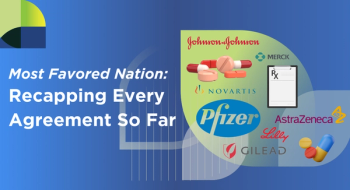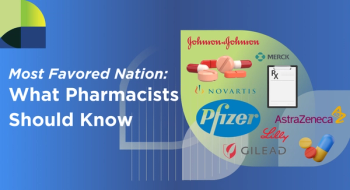
- August 2019 Back to School
- Volume 85
- Issue 8
340B Specialists Help Maintain Program Integrity
These techs are key players in navigating the complexities of the compliance requirements and training staff.
Pharmacy technician 340b specialists act as liaisons between pharmacies and other departments to help maintain program integrity. They develop and uphold policies and procedures related to 340B program auditing and compliance. Tech 340B specialists also work with contract pharmacies, other 340B advocacy groups, split-billing vendors, and wholesalers to optimize the program, as well as maintain compliance and uphold procedures. They are considered experts on 340B and are responsible for competency, education, and training for staff and steering committee members.
Although many pharmacists and techs have heard of 340B, some still lack an understanding of the program and how it may benefit specific health care facilities. Congress enacted the 340B program in 1992, requiring drug manufacturers to sell outpatient drugs at a discounted price.1 The goal of the program is to provide patients access to affordable medications and to stretch federal resources as far as possible and thus provide more comprehensive services.2 The program is administered by the Office of Pharmacy Affairs (OPA) and overseen by the Health Resources & Services Administration (HRSA).
Not all hospitals or pharmacies can participate in the 340B program. Covered entities are listed below, though additional qualifications and requirements are necessary to participate.
HEALTH CENTERS
- Federally qualified health centers
- Federally qualified health center look-alikes
- Native Hawaiian health centers
- Tribal/urban Indian
HOSPITALS
- Children’s hospitals
- Critical access hospitals
- Disproportionate share hospitals
- Freestanding cancer hospitals
- Rural referral centers
- Sole community hospitals
SPECIALIZED CLINICS
- Black lung clinics
- Comprehensive hemophilia diagnostic treatment centers
- Sexually transmitted disease clinics
- Title X family planning clinics
- Tuberculosis clinics
The Ryan White AIDS/HIV/Program Grantees are also covered.
Manufacturers play an important role in 340B, as well, because participation in the 340B program requires an agreement to charge a price that does not exceed the 340B ceiling (maximum amount that a manufacturer can charge for an outpatient drug to a covered entity). As of April 1, 2019, 340B ceiling prices were published on the OPA website, and these prices are calculated quarterly.3
To purchase medications at a 340B discount, patients must meet important criteria. They must receive an eligible outpatient visit or health care service visit at the covered entity and by an eligible provider. Medications covered under the program include biologics, drugs administered in a physician clinic of an eligible child site, insulin, OTC drugs with a prescription, and outpatient prescription drugs. The program also covers outpatient services at a covered entity (emergency department visit). Any drugs used as an inpatient are not covered, nor are medications billed under a bundle and not directly reimbursed. Vaccines are also not included in the 340B program. An eligible provider must write the order for a vaccine to qualify for coverage under the 340B program. An eligible provider includes a person contracted or employed by the covered entity.4
The program is complex, and a tech specializing in 340B compliance can help maintain program integrity through the auditing process, such as identifying patients who are at risk for diversion in the 340B program. Diversion in the 340B program includes any patients who are ineligible for 340B but receive a 340B-purchased medication. This could include a patient who saw an ineligible provider or did not have a health care service to accompany the drug dispensed through 340B pricing.
Additional requirements exist for covered entities “carving into” the Medicaid program. Patients under Medicaid fee for service cannot use 340B medications if the Medicaid drugs are subject to rebates. This is known as a duplicate discount prohibition and serves to protect manufacturers from giving a 340B discount as well as a Medicaid rebate on the same drug. In many states, this also includes Medicaid managed care programs. If a covered entity chooses to carve into Medicaid, it will use 340B drugs for Medicaid patients and bill Medicaid for these drugs. This may require additional detailed information on claims submission to Medicaid, and the covered entity is responsible for maintaining compliance. Other covered entities that choose to “carve out” for Medicaid must ensure that no 340B medications are purchased for Medicaid patients.
Covered entities must complete thorough internal audits and ongoing review of the 340B program to maintain compliance and integrity and ensure proper pricing and reimbursement. In 2019, HRSA said that in addition to regular auditing, it will begin conducting periodic integrity reviews of covered entities.5 Additional setbacks in the program have occurred, particularly regarding cuts in Medicare reimbursement to hospitals participating in the 340B program. In 2018, for instance, Medicare drug reimbursement for 340B hospitals was cut by almost 30%.6 In May 2019, a US district court judge deemed these cuts unlawful, a decision that may lead to a reduction in patient care in the affected hospitals.6 Experts hope HRSA will remedy these cuts in 2019.
Although much scrutiny exists in the 340B program, a report from 2016 Medicare data concluded that 340B hospitals treat a higher percentage of disabled patients, as well as those eligible for Medicare, than non-340B clinics and hospitals.7 The program has a large benefit for eligible entities, and techs can help drive this benefit through successful program implementation, maintenance, and auditing.
Kristy Malacos, CPhT, is the pharmacy administrator and purchasing director at Magruder Hospital in Port Clinton, Ohio.
REFERENCES
- Yuhas R. What is 340B and how does it affect you? University of Pittsburgh Medical Center website. share.upmc.com/2018/06/what-is-340b/. Published June 6, 2018. Accessed July 8, 2019.
- 340B drug pricing program. Health Resources & Services Administration website. hrsa.gov/opa/index.html. Updated May 2019. Accessed July 8, 2019.
- Office of Pharmacy Affairs Information System (OPAIS) pricing component update. Health Resources & Services Administration website. hrsa.gov/opa/updates/2019/may. Updated April 2019. Accessed July 8, 2019.
- Overview of the 340B drug pricing program. 340B Health website. 340bhealth. org/members/340b-program/overview/. Accessed July 8, 2019.
- Vazquez KA. 340B in the spotlight — key program developments. National Law Review website. natlawreview.com/article/340b-spotlight-key-program-developments. Published March 11, 2019. Accessed July 8, 2019.
- O’Brien J. Judge rules 340B cuts unlawful, decision applauded by industry stakeholders. HealthLeaders website. healthleadersmedia.com/finance/judge-rules-340b-cuts-unlawful-decision-applauded-industry-stakeholders. Published May 7, 2019. Accessed July 8, 2019.
- 340B hospitals providing most care for underserved, report says. 340B Health website. 340bhealth.org/newsroom/340b-hospitals-providing-most-care-for-under-served-report-says/. Published April 10, 2019. Accessed July 8, 2019.
Articles in this issue
over 6 years ago
A Hospital and Physician Share Liability for Prescribing Opioidsover 6 years ago
Motivational Interviewing Offers a Path to Improved Adherenceover 6 years ago
Drug Shortages Raise Critical Safety Concernsover 6 years ago
Case Study: Albuterolover 6 years ago
How Can Patients Prevent and Treat Fall Allergies?over 6 years ago
Case Study: Vitamins for Eye Healthover 6 years ago
Pet Peeves (August 2019)Newsletter
Stay informed on drug updates, treatment guidelines, and pharmacy practice trends—subscribe to Pharmacy Times for weekly clinical insights.


























